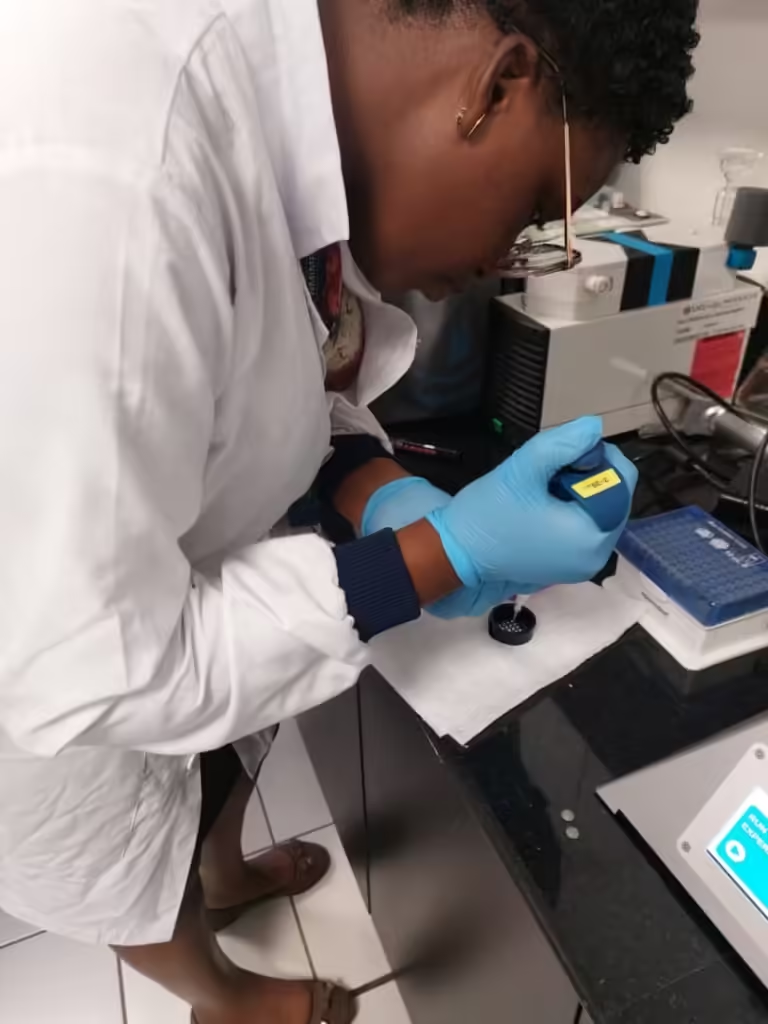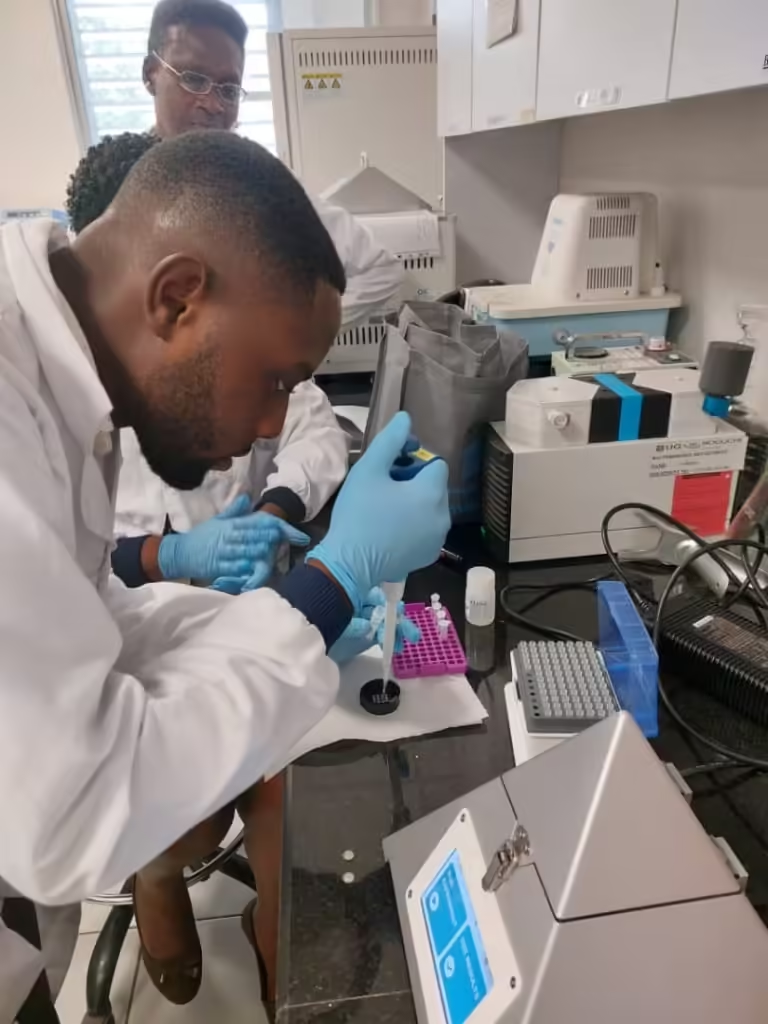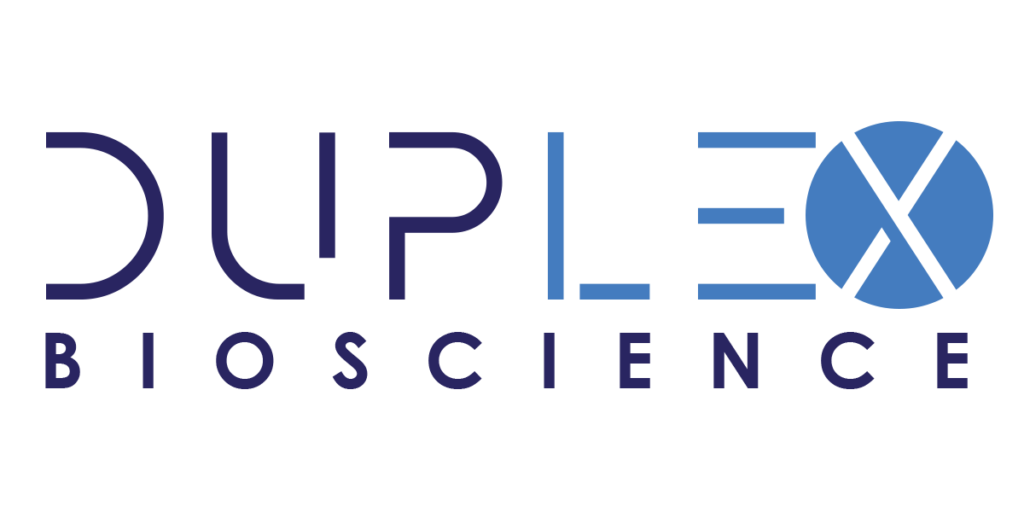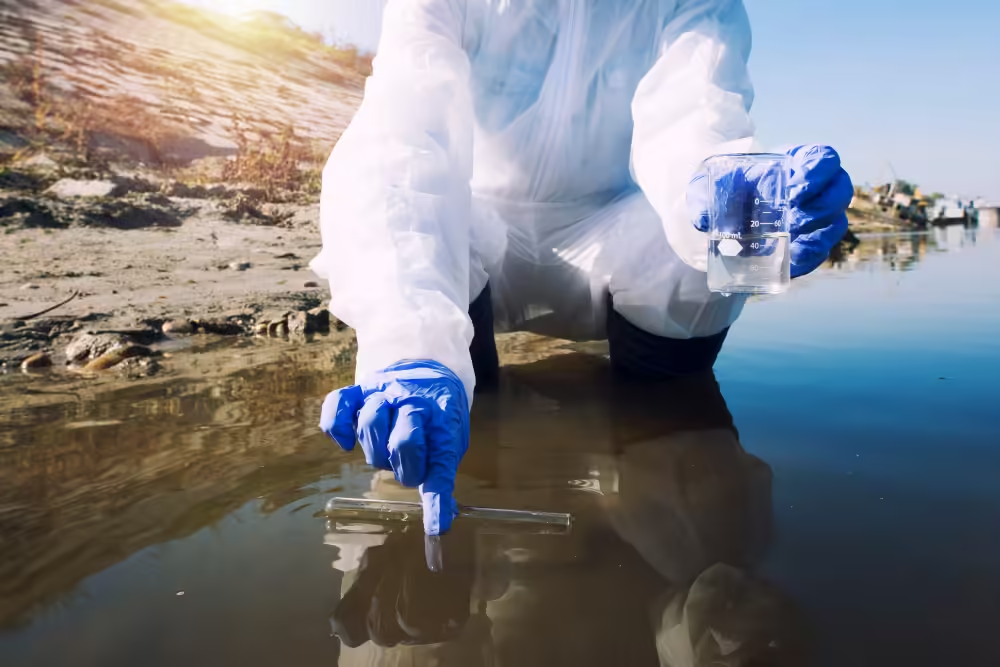Antimicrobial resistance (AMR) is considered a global public health threat by several health-focused institutions including the World Health Organization and similar sister organizations like the Food and Agriculture Organization of the United Nation, research organizations and academic institutions. For a very long time, Hospital AMR surveillance has been regarded as an essential strategy to identify resistant bacteria, their spread and prevalence. On the contrary, this strategy of AMR surveillance developed around culture-based isolation of bacteria from hospital patients, and their phenotypic response to a battery of antibiotics has been shown to be less representative and time-consuming. These time-consuming techniques coupled with poor laboratory information management systems seen within several clinical and research laboratories in Ghana have contributed to the lack of data on pathogens of public health importance and their epidemiology.
Wastewater-based surveillance is increasingly being recognized as an important approach to monitoring population-level AMR. Therefore, we hypothesized and proposed a pilot project to decipher the nexus of AMR distribution in Ghana using digital innovation and molecular detection using wastewater samples. The results of this pilot are expected to provide a blueprint for an extended wastewater surveillance program in Ghana and elsewhere.
The step-by-step approach of AMR surveillance proposed in this project
The project titled “Decipher AMR” was funded by a multi-institutional program based at the University of Basel, Switzerland called “Making Innovation a Reality – Africa Health Initiative” (MIRAHI) grant. This grant allowed the MIRAHI program to connect Duplex Bioscience to Diaxxo PCR system, a Swiss innovation and Noguchi Memorial Institute for Medical Research (NMIMR), University of Ghana to address together the AMR challenge in Ghana. Prior to this project catalysis, Duplex Bioscience, a young Ghanaian startup was focused primarily on building tech enabled software tools to streamline clinical and research bacteria identification and AMR data collection. However, we imagined the need for a comprehensive AMR data collection beside the hospital-based approach, to incorporate the use of wastewater (a conversation which was championed by Dr. Tim Maehaan). On the other hand, Noguchi Memorial Institute for Medical Research, has been at the forefront of AMR research in Ghana. They have used as part of their AMR research both traditional microbiological practices and advanced bacteria and AMR identification methods. Sadly most of the methodologies they used were laborious in nature, and for some of these methods, it was difficult to diagnose AMR, hence it became imperative the need for innovative solutions to reduce the time to result for bacteria identification and AMR detection using molecular detection assays. In places like Ghana, the commercialization of research into market-ready biotechnologies hasn’t garnered the right attention hence the lack of biotech companies building research and medical device products to accelerate local research. Therefore, to overcome these research and development barriers while allowing us to address a critical health gap in Ghana focused on AMR, the MIRAHI program made a connection to its portfolio startup company, Diaxxo, an ETH Zurich spinout startup, developing polymerase chain reaction based medical devices for clinical diagnostics and research to Duplex Bioscience for the purpose of leveraging a Swiss developed innovation for addressing a health problem in Ghana. By using the Diaxxo PCR solutions in the Decipher AMR project, we were able to allow researchers at NMIMR overcome the time to result issue in bacteria and AMR identification while at the same time, Duplex Bioscience, demonstrated its leading role in catalyzing citizen science approach to AMR research in Ghana. Aside from that, through this project, Duplex Bioscience, provided market entry and associated supply chain insights and the rapid time to result in value achieved in the project to Diaxxo.


Research assistants performing Sample extraction, PCR pathogen identification in less than 1 hr
With our unifying hypothesis built around citizen science principles, we collected as part of the project a total of 171 wastewater samples from five regions in Ghana: Eastern (n=13), Greater Accra (n=11), Ashanti (n=31), Upper East (n=4) and Northern (n=112). All wastewater samples collected were processed, DNA extracted and E. coli and Extended Broad-spectrum Beta Lactamase Resistance (ESBL) genes detected using Diaxxo DNA extraction and PCR systems and qPCR respectively. E. coli DNA was detected in 45% (77/171) of the wastewater samples with the positive samples showing the following distribution of these three ESBL genes, namely; SHV, TEM and GES as follows 11.7% (9/77), 27.3 % (21/77) and 23.4 % (18/77). (Detailed results from the project can be accessed here). The use of E.coli as a sentinel pathogen from wastewater combined with innovative nucleic acid technologies in our pilot study helped to reduce the time to AMR identification while providing a high-level picture of the population-level spread of ESBL resistance genes in E.coli through a One Health approach using wastewater.
It will be misleading to report that this project was without challenges despite achieving its set objectives. Some of the challenges include shipping and customs issues, and the lack of a research lab by Duplex Bioscience. These unique challenges we faced on this project still begs the need for a comprehensive support for African innovators, scientists and entrepreneurs with bold ideas looking to transform the healthcare challenges of the continent with science, technology and innovation.
This support can be modeled on the Focused Research Organization (FRO) model. This approach allows ambitious scientific ideas that might struggle within a traditional university setting due to bureaucratic constraints but are not yet ready to function as startups, to continue pursuing breakthrough discoveries. Duplex Bioscience is poised to keep pushing the limits on building the first and largest infectious diseases database to inspire AMR research, therapeutics and diagnostic development for African communities.
Overall, the project was a success and it ended with a workshop that brought together about 25 participants, many of whom were researchers, prescribers, diagnosticians and students. A recording of the workshop can be accessed here.





